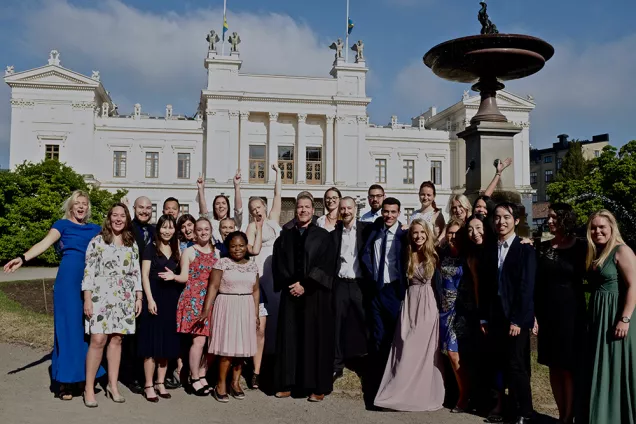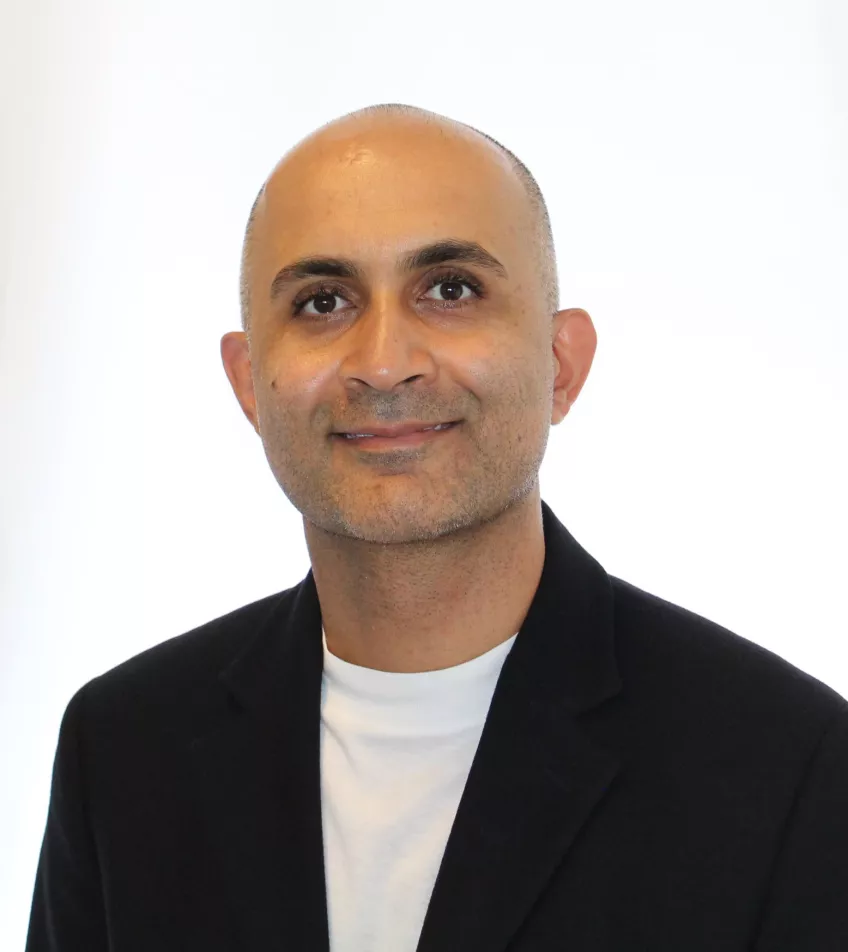What Khan says about the Master's in Service Management, Supply Chain Management
Khan Kasi, Business developer at IKEA in Switzerland
What did you do before you started studying the Master’s programme in Service Management?
Before joining the program, I was involved in managing Quality Management Systems and Information Security Management Systems. Specifically, I worked on implementing ISO standards, conducting internal audits, and ensuring compliance. This included obtaining certifications to meet auditable benchmarks, ensuring that our clients in the US could trust us with their data. The certifications were crucial for building that trust and facilitating collaboration.
Why did you choose the Master’s in Service Management and the specialization of Supply Chain?
During my studies in the UK, I was working part-time at Tescos. This retail experience started from the basics, like shelving products, and gradually evolved. I had an interest in computers and data and some of my colleagues recognized my interest in these areas and they suggested my transition from shelf stacking to stock taking. This marked the beginning of my journey, starting as a front-line employee and eventuallymanaging to ran shifts with a team, a responsibility I still fondly remember. As my interest in retail grew, I decided to delve deeper into the supply chain. I wanted to comprehend the intricacies of how products reach the shelves. In my role, I was involved in placing orders and making decisions based on various factors, such as weather conditions affecting the demand for product. Analyzing sales patterns and even conducting my own forecasting became a routine, with a focus on achieving weekly targets set for each store. The realization that these decisions significantly impacted sales and were influenced by various parameters like location, weather, and demand dynamics, led me realize that a deeper understanding of supply chain management was essential. Hence, I chose to pursue studies in supply chain.
Why did you choose Sweden and Campus Helsingborg?
I wanted to experience something that I had not done before. Having lived and worked in London, I realized that education isn't just about academic pursuits; it extends to the overall life experience. During my research, I discovered that Lund University not only boasts prestige but also offers an excellent social environment. The learning process involves connecting with people, and these elements play a crucial role in shaping your everyday life, mood, and learning patterns. For me, it was vital to choose a location that contributes not only to my professional and career development but also to my personal growth. Lund University aligned perfectly with this criterion, making it my preferred choice.
What do you think about the teaching method?
In Sweden, there's no hierarchy and this approach is reflected in the teaching and learning environments. Having proficient professors who encourage interaction and open discussions is crucial. While listening is essential, the emphasis is also on engaging in discussions and open dialogues with professors. The overall environment promotes active participation and open discourse. I found this aspect to be highly beneficial. It fosters an environment where everyone feels encouraged to voice their opinions and engage in open discussions. This dynamic not only positively impacts the learning experience within the university but also extends to interactions outside the academic setting.
What was the first role you worked with after your graduation?
After graduating, I received a job offer from Everfresh, Nowaste Logistics in Helsingborg, to join their team as a trainee. The company provided a comprehensive training program where I not only learned but also actively contributed to various projects. We worked on the development of new projects, secured new clients, and engaged in impactful initiatives. During this experience, I gained valuable insights, particularly in the production and warehousing aspects, and the entire supply chain. This included comprehending the inbound processes for items like fruits and vegetables and the subsequent outbound processes, along with the transit and transportation in between. This holistic understanding allowed me to grasp the lead times, identify potential challenges such as stock-out issues, and comprehend the broader dynamics of the supply chain.
What was your next step and what are you currently working with?
There have been significant changes in both my professional journey and educational pursuits. After working for 2 years and seven months in my initial role, I decided to embark on another academic venture, pursuing a second Master's degree from Lund University. This time, I chose IT and information systems, driven by my interest in understanding the intricate exchange of information within supply chain dynamics. The decision to pursue another Master's was not merely about obtaining another degree. Lund University, with its supportive environment and strategic location in Lund City, provided ample opportunities for exploration and collaboration with innovative companies like Indeon, Mindpark, and Sony Ericsson. During my studies, I seized the chance to apply for a grant at Lu Innovation Lund University aiming to contribute to the business context with a focus on information systems. My project centered around addressing the challenges of food quality in transit, particularly in Sweden. We aimed to leverage technologies such as IoT devices and sensor data to enhance supply visibility and reduce wastage in transportation. This endeavor allowed me to test ideas and hypotheses, leading to valuable insights into the factors influencing food quality during transit. The grant I received facilitated the testing of innovative solutions, contributing not only to academic knowledge but also offering practical applications in the field.
Then I joined IKEA as a master data specialist. I was involved in delving into ERP solutions like M3, particularly focusing on the supply planning and financial master data modules. In this role, my responsibilities revolved around managing data crucial for supply chain operations, involving suppliers, customers, and the items being supplied. Change management, data governance, and data quality emerged as integral aspects of my role. My experience at IKEA Food not only expanded my knowledge but also paved the way for my promotion to the role of a master data leader. Here, my focus shifted to the developmental aspects of data, emphasizing data governance and quality for IKEA Food Supply. Continuing my professional journey, I assumed a new role as a process developer in traceability/transparency and compliance at IKEA. This role involved working with specialists, ensuring a clear understanding of the origins of materials and their connection to the final product. The emphasis on compliance touched on sustainability and quality, involving practices related to human rights, sustainability claims, climate reporting, and carbon footprint in IKEA value chain. In this role, I also collaborated with quality specialists on process development within quality management systems. We specifically focused on implementing ISO standards among our suppliers and improving product quality in the supply chain by reducing errors and issues in production. I worked on integrating digital technologies to support and enhance these processes. This multifaceted role aimed at ensuring that best practices were robust, aligned with ISO standards, and optimized using digital technologies. Throughout my career, I have continued to seek out new challenges and opportunities to contribute to the development of business processes and systems.
What advice would you give to new students?
My advice to new students is to recognize that university is more than just classrooms and textbooks. While theoretical knowledge is crucial, it's equally important to explore beyond these boundaries. Universities in Sweden, in particular, offer open sessions, discussions, and bring in guest lecturers from prominent organizations. Take advantage of these opportunities to build your network. Networking is not only beneficial for your academic journey but also for personal and professional development. By engaging in these open avenues, you'll encounter a diverse array of people, fostering connections with individuals from different cultures and backgrounds. This diversity enriches your learning experience and contributes to your personal growth. While it's essential to attend classes and focus on academic pursuits, I encourage you to explore these additional opportunities whenever possible. An example from my time in Lund involves sessions held in Mindpark Campus Helsingborg, including breakfast gatherings where students were invited to meet, share ideas, and explore various topics. These interactions broaden your perspective and help you understand the interconnectedness of different fields. So, my advice is to seize these chances for exploration, connect with professionals, and make the most of your university experience.

Career after Service Management
Work places and titles our master's alumni have today.

Meet our students
What our students say about their studies.


